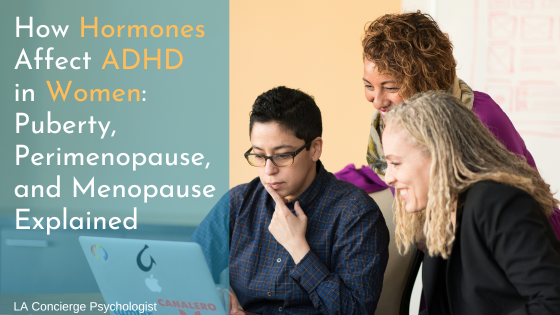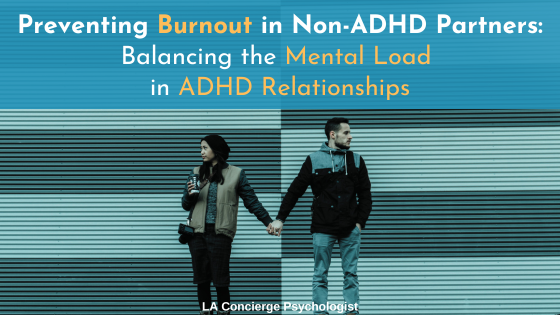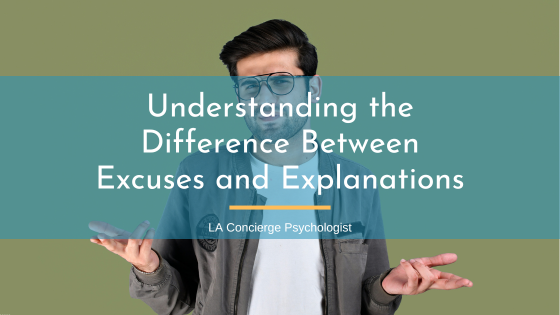If you’ve experienced the feeling when even the smallest slight or ambiguous comment sends you spiraling, leaving you convinced you’ve messed up and alienated everyone around you — then you may be living with rejection sensitive dysphoria (RSD). If unmanaged, it’s an intense reaction to rejection that can sabotage relationships, someone’s career, and mental well-being.
While RSD isn’t an official diagnosis in the DSM-5[1], the experience of being hypersensitive to criticism or perceived rejection is very real for many people, especially those with ADHD. For ADHDers, emotional dysregulation is often par for the course, and they can have significantly higher rejection sensitivity compared to their neurotypical peers.
The challenges with emotional regulation that come with ADHD can make rejection feel very intense. Considering many neurodivergent people also experience comorbid C-PTSD, often from growing up without being understood and supported, the symptoms of RSD can be even more challenging to manage.
The good news is that there are ways to manage rejection sensitivity and regulate yourself if you experience rejection. In this article, we’ll explore some of the root causes of RSD and discuss some options for feeling more in control.
What Does Rejection Sensitive Dysphoria Look Like?
For those with RSD, perceived rejection can trigger extreme negative thoughts, low self-esteem, feelings of shame, and emotional dysregulation. Even small social cues that imply disapproval can send their mind spiraling into deep feelings of rejection and abandonment.
This rejection sensitivity can encourage people-pleasing behavior that goes into overdrive, trying to prevent rejection at all costs and suppressing the person’s own needs and boundaries. Others may cope by rejecting others first through outbursts, anger, defiance, or impulsivity to avoid being hurt.
Common experiences of RSD include:
- Taking constructive criticism as a personal attack and being unable to separate those things
- Obsessing over neutral comments or facial expressions for signs of rejection
- Instantly feeling dejected, worthless, and defeated after small social blunders
- Ruminating for days over perceived slights or criticism
- Uncontrollable emotional meltdowns over minor interpersonal incidents
- Preemptively pushing people away, quitting jobs, or sabotaging relationships to avoid future rejection
Because it’s not widely discussed, it’s common for people to go through life not realizing they have RSD. This can lead to intense and unnecessary suffering without the language to communicate their needs. The intense feelings of rejection, shame, and devastation from RSD can be overwhelming and debilitating for daily life, work, and relationships.
What Causes Rejection Sensitive Dysphoria?
While experts are still determining exactly what makes some people’s brains so sensitive to rejection, experts believe it comes down to how our brains process physical and emotional pain. We all have natural opioid receptors that help control our pain perception and make hurts feel less intense. But for those with rejection sensitivity, this pain-dulling system may overreact when it comes to emotional injuries like rejection. As a result, every critical comment or cold shoulder can feel unbearable.
Our brain’s reward pathways could also be a factor. We all get a hit of feel-good brain chemicals like dopamine when we experience success, praise, or social acceptance. It motivates us to keep seeking those rewards. However, some people’s brain chemistry may make them hypersensitive to losing that rewarding feeling of acceptance; hence, the emotional meltdown when faced with rejection.
For others, rejection sensitivity could develop from challenges in the emotional processing areas of the brain. If the amygdala, the brain’s threat detector, goes into overdrive, specifically when it perceives social rejections, rejection can feel incredibly difficult to manage. Our childhoods can leave lasting impacts, too. While RSD is not believed to be developed from trauma, adults who face a lot of rejection, neglect, or criticism as children can experience dysregulation when facing rejection, making it difficult to feel emotionally safe. Comorbid C-PTSD or PTSD cay also be impacting emotional regulation.
How Is Rejection Sensitive Dysphoria Linked With ADHD?
While anyone can experience rejection sensitivity to some degree, it’s far more common and acute for those with ADHD. Some studies suggest up to 98% of adults with ADHD experience clinically significant RSD.
This strong co-occurrence could be due to a combination of ADHD-related factors:
Challenges picking up on nuanced social cues
ADHD-ers can struggle with processing nonverbal communication such as tone, facial expressions, and body language. They may miss or misinterpret subtleties that signal someone’s true feelings, leading them to say or do things that inadvertently come across as insensitive or rude. When the person then receives any form of correction or negative response, their ADHD brain interprets it as outright rejection rather than constructive feedback, triggering an intense RSD reaction.
RSD can exacerbate core ADHD symptoms
RSD doesn’t just co-occur with ADHD; it can actually exacerbate and amplify many core ADHD symptoms. The emotional turmoil of rejection sensitivity makes it extremely difficult to stay focused and attentive. People become preoccupied with ruminating over the perceived rejection rather than being able to concentrate on the task at hand. RSD can also intensify issues with hyperfocus as people can get stuck fixating on a slight for hours or days. And, of course, emotional dysregulation is worsened as RSD sends emotions spiraling out of control in response to rejections.
Low dopamine levels can drive the need for social validation
Part of why those with ADHD may be so prone to extreme rejection sensitivity comes down to dopamine deficiencies. Dopamine plays a vital role in the brain’s reward pathway and our ability to experience feelings of satisfaction, pleasure, and motivation. With insufficient dopamine, small wins, successes, and social approval don’t provide the same rewarding feeling for the ADHD brain. So it becomes desperate to avoid even mild rejections, which feel devastatingly punishing without that dopamine-fueled reward hit from acceptance or praise.
Impulsivity can lead to instant, unregulated emotional reactions
ADHDers can be impulsive and sometimes act on feelings without being able to pause and rethink their reactions first. So when the ADHD brain perceives rejection, there is no ability to reframe the situation or use coping strategies rationally. The overwhelming surge of emotional pain just comes bursting out automatically in an instantaneous, unregulated way. Practicing regulation strategies can be hugely helpful in this case. There can also be ingrained unhelpful thinking patterns and few tools for constructively self-soothing the distress of perceived rejection. Without solid emotional regulation abilities, RSD runs rampant.
The impact of lifelong experiences of criticism and rejection
The cumulative impact of lifelong experiences with criticism and rejection can’t be ignored as a contributor to RSD’s development, especially for those with ADHD. From a very young age, those with ADHD tend to face excessive scolding, labeling, and put-downs related to their neurodevelopmental differences and related “problem behaviors.” This childhood emotional invalidation and shaming can build upon itself over time, cultivating profound feelings of low self-worth that get reactivated with each new experience of rejection as an adult.
So, while RSD itself isn’t inherently a diagnostic criterion for ADHD, the combination of dopamine deficits, attentional issues, impulsivity, and emotional dysregulation in ADHD appears to create the perfect neurological storm for extreme rejection sensitivity to take root.
How is Rejection Sensitive Dysphoria Impacting Your Life?
When someone with ADHD experiences frequent, intense episodes of RSD, it can severely impact their mental health, relationships, career, and overall daily functioning and quality of life.
Persistent feelings of rejection, shame, and devastation can lead to:
- Social anxiety, avoidance, and self-imposed isolation to avoid any future rejections
- Chronically low self-esteem, negative self-talk, and poor self-image
- Depression, persistent negative thoughts, and lack of motivation
- Academic or workplace problems due to perfectionism and hypersensitivity to criticism
- Strained romantic relationships from emotional outbursts, clinginess, or withdrawing
- An inability to set healthy boundaries for fear of pushback or abandonment
- Anger issues, burnout, and physical symptoms of chronic stress
The emotional storms of RSD not only cause immense distress in the moment, but the constant fear of rejection can create longer-term challenges with self-confidence, ability to take risks, trust issues, and overall wellbeing. For many, learning how to manage and cope with these intense emotional reactions becomes essential for living a fulfilling life.
How to Manage RSD in Adults With ADHD
While the emotional upheaval of rejection sensitive dysphoria feels awful and uncontrollable in the moment, there are ways for adults with ADHD to get to the root causes and develop healthier, more resilient patterns over time. Here are some of the most common methods for managing RSD with ADHD.
Practice self-compassion
At its core, RSD stems from feelings of inherent defectiveness and unlovability. So much of the inner turmoil comes from negative self-criticism and judgment. Consistent efforts to cultivate self-compassion, recognizing our shared human imperfections with kindness rather than harsh self-attack, can soothe RSD’s wounding effects over time.
Affirmations, compassionate self-talk, mindfulness, and intentional self-validation can help quiet RSD’s inner monologue of shame and unworthiness. Support groups can also provide safe spaces to work through RSD experiences without fear of rejection.
Build self-awareness
Part of managing RSD is increasing self-knowledge about your personal patterns, emotional triggers, and areas of greatest sensitivity. Tactics like mood tracking, journaling about rejection experiences, and exploring your emotional needs with loved ones can promote powerful self-insight.
This allows you to anticipate potential RSD flare-ups, implement preventative coping mechanisms, and communicate your sensitivities so others can respond with empathy and care. Self-awareness is key for interrupting runaway RSD reactions.
Work with an understanding therapist
For most, therapy is a vital part of managing RSD in the long term. Working with an experienced and affirming therapist who understands ADHD and RSD can help you recognize and reframe negative thought patterns around rejection. They can also help you develop self-regulation techniques so that when you do feel triggered, you can regain control more easily. Learning to regulate intense emotions and building your self-esteem with a professional can make RSD and how it feels and impacts you much more manageable overall.
Find Neurodivergent-Affirmative Therapeutic Support for ADHD and RSD
By choosing a neurodivergent-affirming therapist, you are much more likely to find a safe space to be yourself as you heal and grow. RSD can be a difficult part of being neurodivergent, but, with support, you can learn to manage rejection in a less deregulating way.
Here at LA Concierge Psychologist, all of our doctoral-level therapists are firmly committed to providing neurodivergent-affirming therapy for our clients. In particular, we specialize in adult autism and adult ADHD. All our therapists also have experience with anxiety, depression, and trauma. Send us a message to see how we can help, or book a free 20 minute consultation call with Dr. Barajas or Dr. Goldman.



